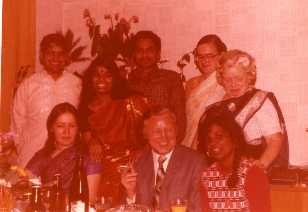
Care, Migration, Gender. A research project of Urmila Goel
Current projects
Fellowships

In this research project the interdependencies of care, migration and gender regimes are analysed. In accordance with theorisations in German critical migration research regime is understood as the assemblage of different actors, actions and discourses, which produce in their interactions in each situation particular manifestations of care, migration and/or gender. The concept of regime thus makes it possible to look at political institutions, legislation, (material) infrastructure, discourse, individual actors, etc. at the same time in order to understand better, how they influence each other and produce specific situations. It is thus possible to analyse the political and its potentially ambivalent adaptations in a complex perspective. Given the complexity, regime analyses need a specific context, where the research will start. They combine ethnographic investigation with discourse analyses.
The starting point of this research project is the recruitment of young female nurses or trainee nurses from Kerala by West German hospitals and homes for the elderly in the 1960s. From here the regime analysis follows different strands connected in particular by questions around the gender regime. It is analysed how gendered concepts, gender order and gender dynamics influence and shape as well as develop from this particular migration context of care workers. The research project thus not only looks at the motivation and practices of recruitment, but also at the regulation of the nurse’s life and work in West Germany, at their struggles to stay in West Germany, at the rules for reunification with husbands from Kerala and the consequences of these, at the doing and displaying of family in this migration context, at the children of the nurses and their own family formations and at the question of ageing.
In doing this the research project is not only founded on gender and queer studies, critical migration research and studies around care, but also draws on the extensive literature about nurse migration from Kerala as well as literature on the recruitment of nurses from South Korea to West Germany. It is furthermore based on own ethnographic research around the nurse migration from Kerala to West Germany, which I began in 1997. This includes interviews, participant observation, archive material, document and media analysis, informal meetings, etc.